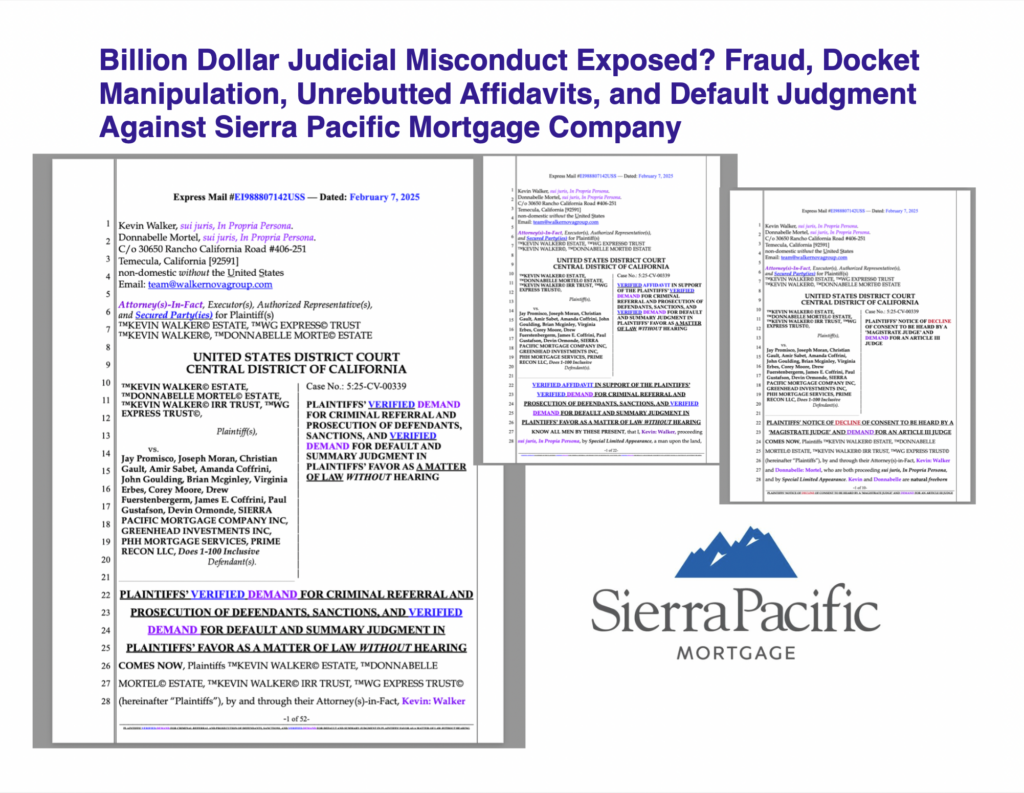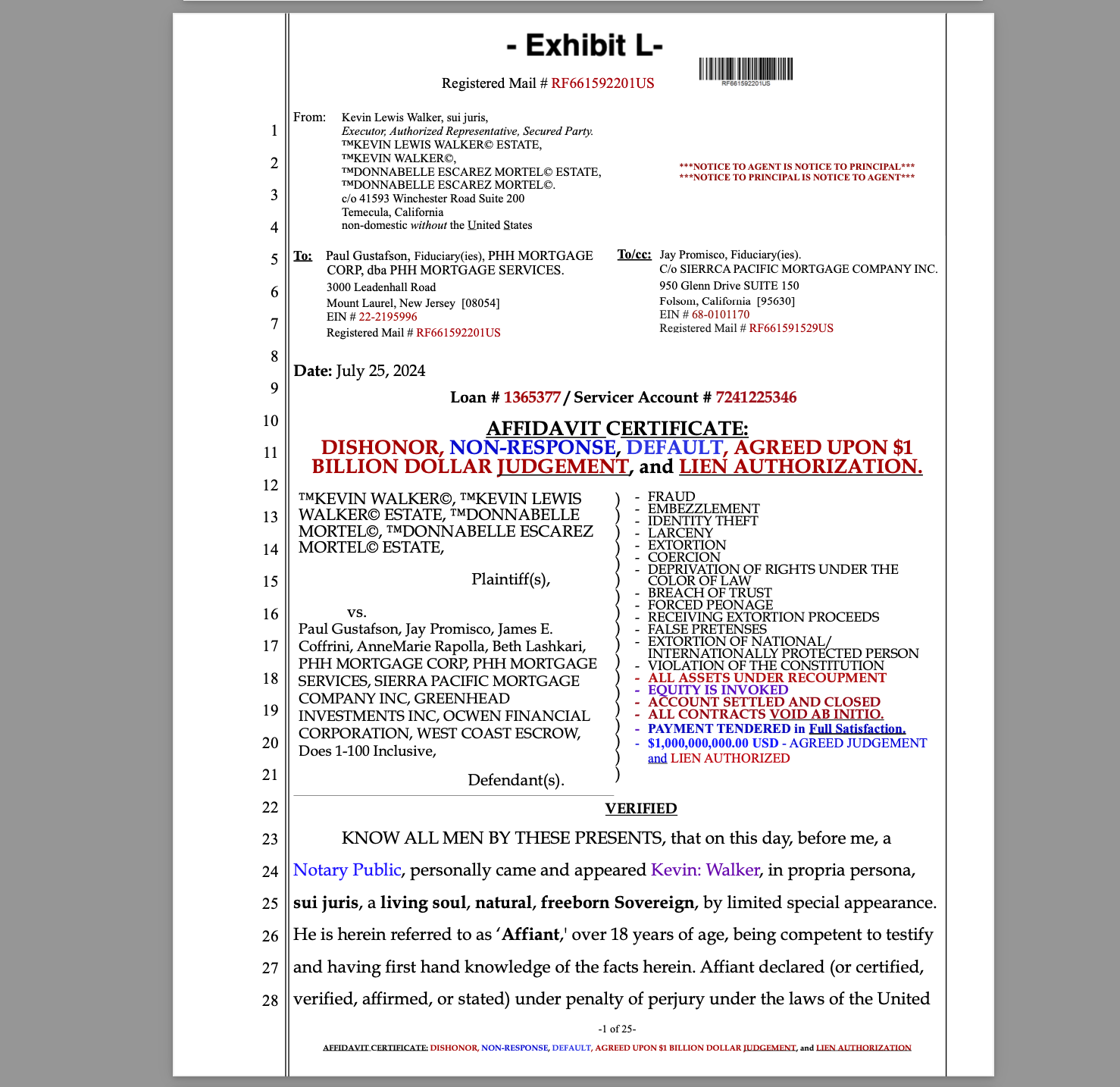Central to the Plaintiffs’ claims are five (5) unrebutted affidavits submitted in compliance with UCC § 3-505, which explicitly establish the Defendants’ dishonor and tacit admission to all claims outlined therein. These affidavits, accompanied by an Affidavit Certificate of Non-Response, stand as irrefutable evidence in commerce. Under binding legal principles, such as stare decisis, res judicata, and collateral estoppel, the facts contained in the affidavits are now deemed conclusively established and uncontested.
Despite United States Postal Service (USPS) tracking records confirming that the filings were successfully delivered twice—once via Registered Mail and once via Express Mail—the documents are not reflected on the court docket. Additionally, one (1) critical notice sent to the court has gone missing entirely, with USPS failing to mark it as delivered or account for its whereabouts.
This disappearance of properly filed documents raises serious concerns about potential malicious interference, fraud upon the court, and obstruction of justice.
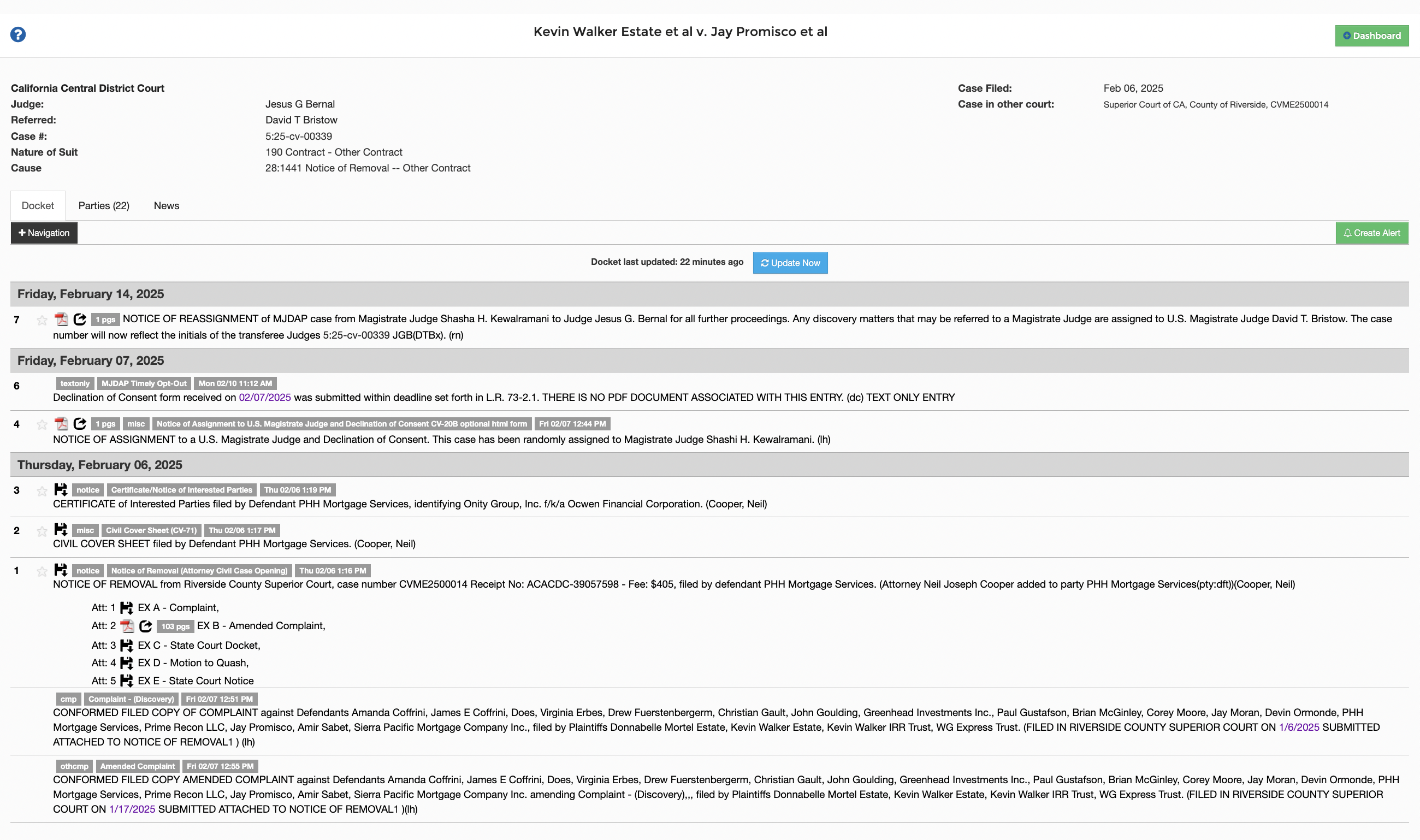



Further amplifying the legal impact, KEVIN WALKER ESTATE did not submit a motion, but rather a DEMAND. Unlike a motion, which seeks permission from the court, a demand is self-executing, meaning it carries immediate and binding effect. This distinction is critical, as a demand from a living man in their proper capacity commands legal standing and authority that courts, officers, and respondents cannot ignore or override without committing fraud and breach of duty.
The Defendants, including Jay Promisco and Sierra Pacific Mortgage Company, have failed to respond or rebut the affidavits, constituting silent acquiescence and tacit agreement. As a result, they are legally barred from contesting any of the Plaintiffs’ claims or facts, including allegations of fraud, extortion, and deprivation of rights under color of law.
Presumption of Dishonor and Default
Pursuant to UCC § 3-505, the failure to provide a point-by-point rebuttal places the Defendants in dishonor. The Plaintiffs’ notarized “Affidavit Certificate of Dishonor, Non-Response, Default, Judgment, and Lien Authorization” serves as formal protest and evidence of dishonor.
Given the Defendants’ non-response, the Plaintiffs assert that all issues are settled as a matter of law, with the Defendants presumed in permanent dishonor. The unrebutted affidavits further confirm that the Defendants are debtors in this matter and have no lawful standing.
Furthermore, the failure of the court to reflect these filings on the docket, despite USPS confirming two successful deliveries, coupled with the disappearance of one additional notice that was never marked as delivered, constitutes an egregious breach of due process. This raises legal grounds for Plaintiffs to seek judicial review, mandamus relief, and criminal referral for obstruction of justice.
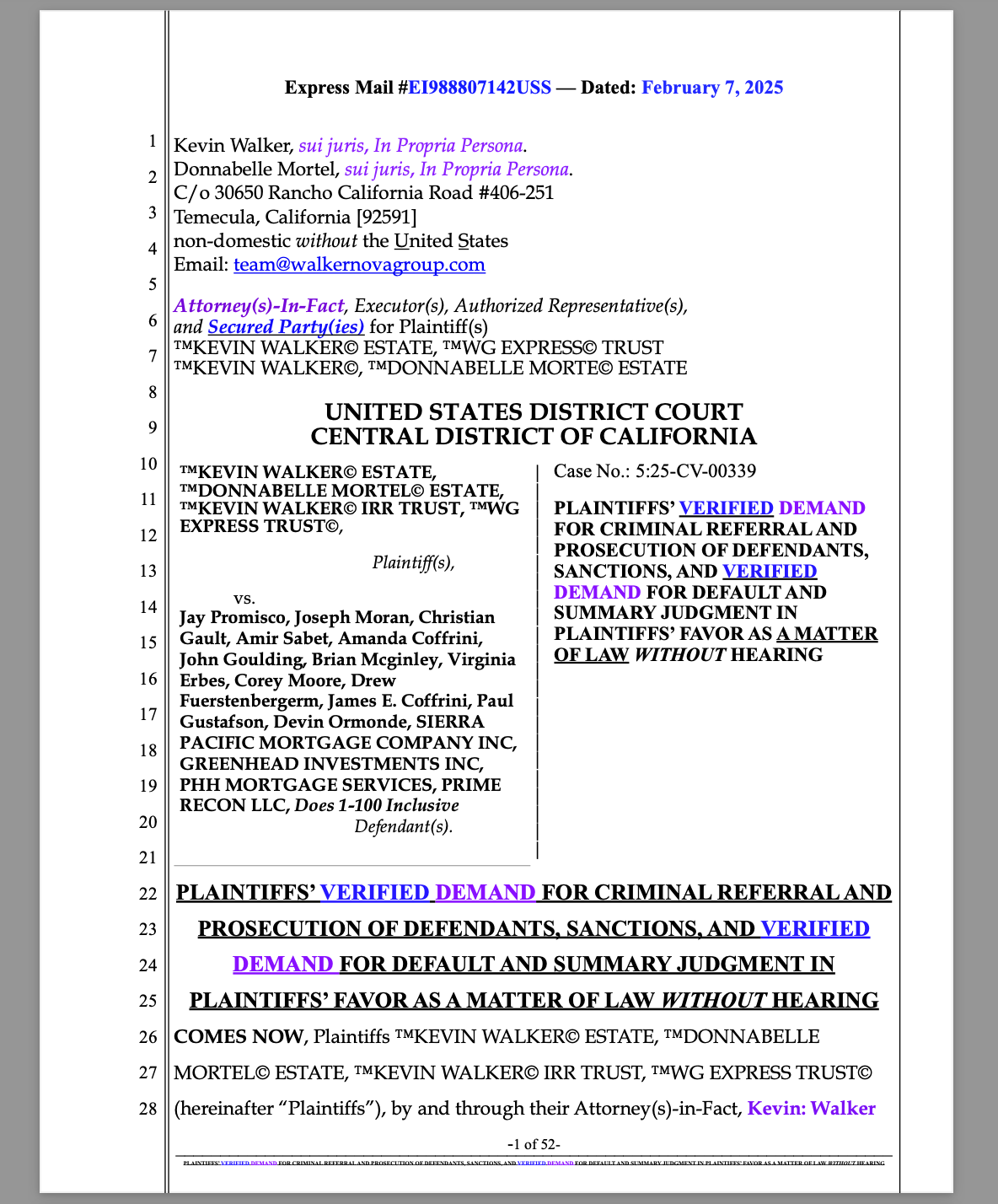
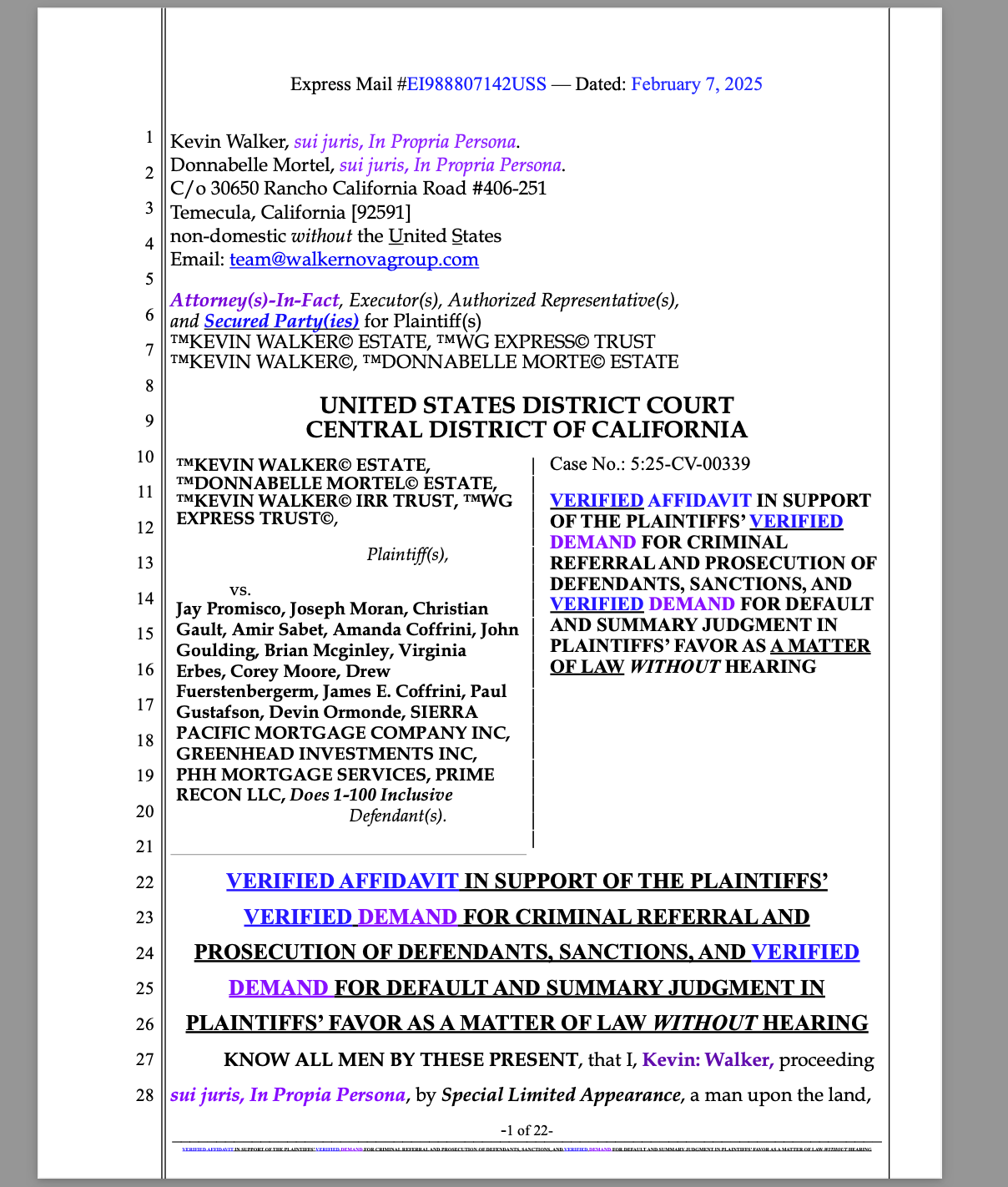
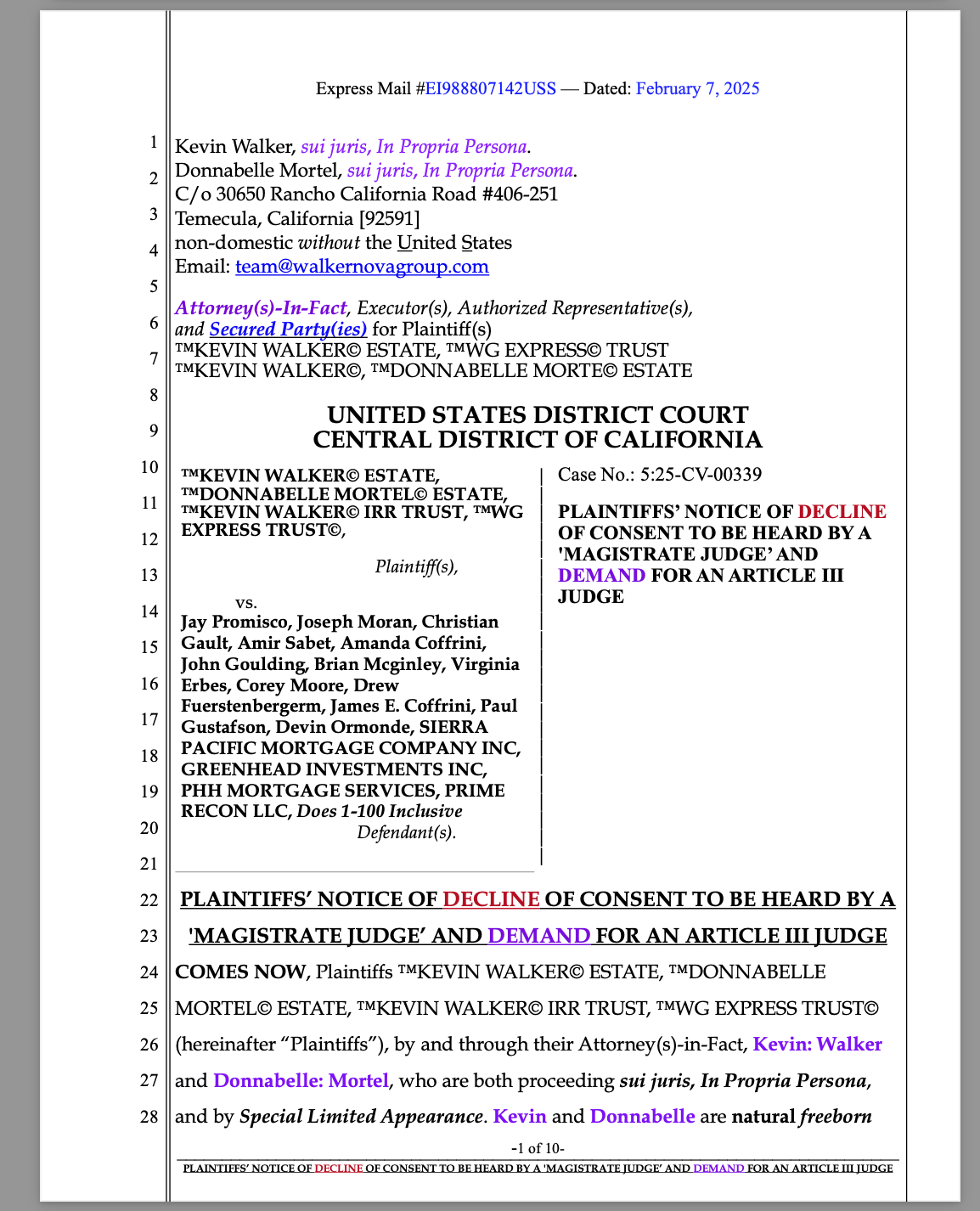
Plaintiffs Seek Criminal Prosecution, Sanctions, and Summary Judgment
To solidify their position, the Plaintiffs have filed a comprehensive “Plaintiffs’ Verified Demand for Criminal Referral and Prosecution of Defendants, Sanctions, and Verified Demand for Default and Summary Judgment in Plaintiffs’ Favor as a Matter of Law Without Hearing.”
This demand is supported by a detailed “Verified Affidavit in Support of the Plaintiffs’ Verified Demand”, meticulously outlining the Defendants’ violations and affirming the Plaintiffs’ entitlement to summary judgment, criminal referrals, and sanctions.
Key Assertions Include:
- Criminal Referral – Plaintiffs seek immediate criminal prosecution for fraud, extortion, and other alleged crimes.
- Sanctions – Plaintiffs request punitive measures against the Defendants for their willful dishonor and failure to rebut the affidavits.
- Summary Judgment – Plaintiffs demand judgment in their favor as a matter of law, without the need for further hearings, given the Defendants’ failure to contest the affidavits.
The removal of properly filed documents from the docket, along with one missing notice that USPS failed to track, further solidifies the necessity of these legal actions.
Most importantly, because KEVIN WALKER ESTATE filed a DEMAND rather than a motion, the failure to acknowledge or process the demand only intensifies the legal consequences of dishonor and default. The self-executing nature of the demand means that failure to rebut constitutes absolute agreement to the terms laid out by the Plaintiffs.
Summary Judgment as a Matter of Law: Rule 56 and California Legal Standards
The Plaintiffs’ filings in Kevin Walker Estate v. Sierra Pacific Mortgage Company assert that summary judgment is appropriate under both federal and California state law.
Pursuant to Federal Rule of Civil Procedure 56, summary judgment must be granted when there is no genuine dispute as to any material fact and the moving party is entitled to judgment as a matter of law. Plaintiffs have demonstrated through five (5) unrebutted affidavits that the Defendants have tacitly agreed to all factual assertions, thereby eliminating any triable issues of fact.
Under Rule 56, the burden shifts to the Defendants to present admissible evidence to rebut the claims presented in the Plaintiffs’ demand. The absence of any such evidence constitutes a legal admission to the Plaintiffs’ claims, making summary judgment mandatory.
California Law: CCP § 437c(c)
California law provides similar authority under California Code of Civil Procedure § 437c(c), which states:
“The motion for summary judgment shall be granted if all the papers submitted show that there is no triable issue as to any material fact and that the moving party is entitled to a judgment as a matter of law.”
Given that the Defendants failed to rebut any of the five affidavits or provide evidence disputing the claims, the affidavits now stand as irrefutable proof. Under California Evidence Code § 664, an official duty is presumed to have been performed, and the content of unrebutted affidavits is accepted as true.
A Turning Point in Legal History
The Kevin Walker Estate’s case against Sierra Pacific Mortgage Company sets a critical precedent for the enforcement of affidavit-based claims and the legal consequences of tacit agreements.
The intentional failure of the court to reflect properly filed documents on the docket, despite USPS proof of delivery, along with one missing notice that USPS failed to track, raises serious concerns about fraud, obstruction of justice, and judicial misconduct. This violation of due process must be remedied through immediate legal action, including potential criminal referrals.
Furthermore, the fact that KEVIN WALKER ESTATE submitted a DEMAND instead of a motion further amplifies the weight of the case. A self-executing demand stands on its own authority, making the court’s failure to act an outright dereliction of duty. This confirms that the Defendants and the court itself have agreed through tacit admission to the lawful, commercial, and constitutional claims of the Plaintiffs.
As the matter progresses, the Plaintiffs’ insistence on justice and constitutional adherence is likely to have profound implications for commercial and legal practices.

